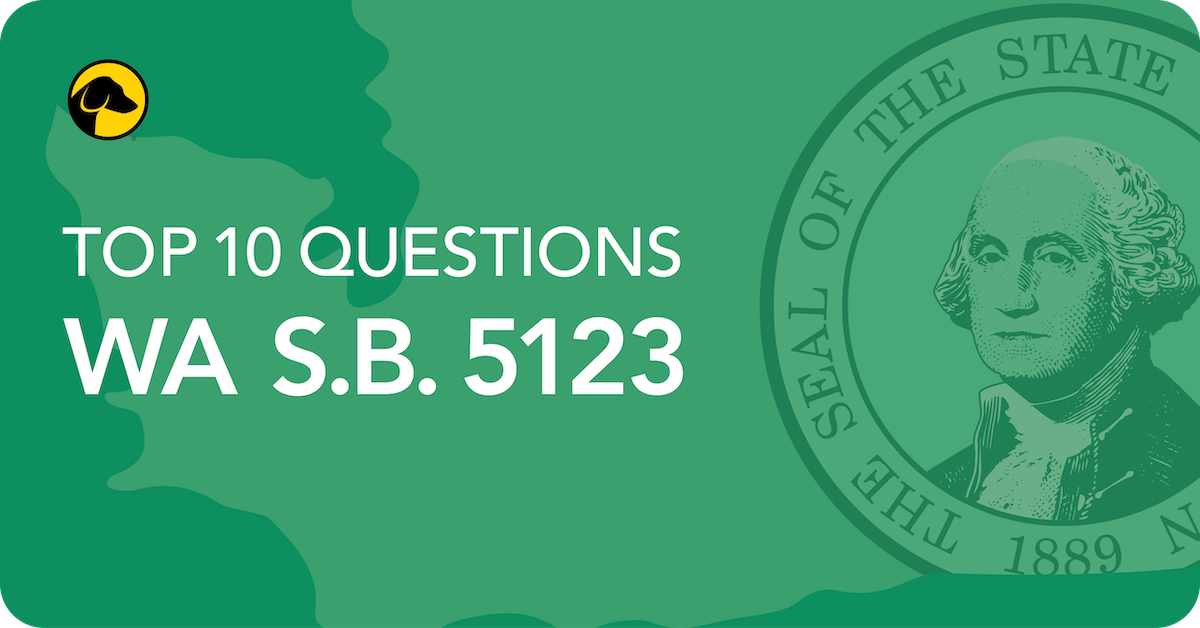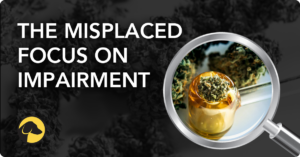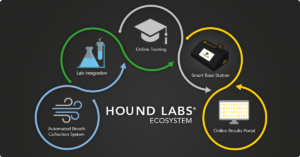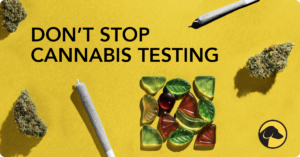
Top Ten Questions About Washington Senate Bill 5123
More than a decade after Washington legalized cannabis use, it has grown into a $515 million industry1 with more than half of all adults in the state having used cannabis at some point.2 Now, with the passage of Washington S.B. 5123, the state’s legislators – just like lawmakers in several other states – are working to ensure people don’t experience employment discrimination as a result of off-duty cannabis use.
Even as these laws gain momentum across the United States, no two are the same. That leaves a lot of questions for employers looking to understand the law and adapt their employment drug testing practices. Here are answers to some of the most frequently asked questions surrounding WA S.B. 5123.
1. What does WA S.B. 5123 entail?
The law will limit employers from discriminating against an applicant for using cannabis “off the job and away from the workplace” during the hiring process. Additionally, any employer using drug testing may no longer be able to use a test that identifies the non-psychoactive metabolites in cannabis.3 Those metabolites can stay in a person’s urine and hair for weeks or even months after use – long after any potentially safety-impacting effects could impact an employee’s job performance or overall workplace safety.
2. When does WA S.B. 5123 take effect?
Employers will need to comply with the new law by January 1, 2024.4 Governor Jay Inslee originally signed WA S.B. 5123 into law in May.
3. What’s the main objective of the law?
Legislators intend for the law to protect job candidates who may choose to use cannabis outside of work. The law may restrict employers from relying on pre-employment cannabis drug tests that include results for non-psychoactive metabolites. In essence, if someone applies for a job and a drug test is required, that test should not reflect whether the applicant has used cannabis in the days or weeks before the pre-employment drug test – with some exceptions.
4. What are the exceptions of the law?
Washington S.B. 5123 carves out exceptions for first responders, including law enforcement, fire departments, and 911 dispatchers, as well as corrections officers who are responsible for the safety and security of others. Positions in airline and aerospace industries also are exempt as are any jobs where “a substantial risk of death” could result from an employee’s recent cannabis use.5
5. How does WA S.B. 5123 impact employers?
Beginning in 2024, some employers will not be able to use drug test types that detect the non-psychoactive metabolites of cannabis as part of their hiring practices.6 The law limits using test types that detect metabolites since they can remain in a person’s system after any potentially safety-impacting effects of cannabis have worn off.
6. Is there a way to maintain a drug-free workplace and still comply with the law?
Washington S.B. 5123 only applies to hiring, not all employment decisions, but even if it was all-encompassing, it would still be possible for employers to foster a drug-free environment. First, ensure you have an updated drug testing policy focused on deterring recent cannabis use. Then, back that policy up with fair testing methods such as the HOUND® CANNABIS BREATHALYZER. This breath testing solution only detects recent use, ensuring those who use cannabis outside of work won’t risk being penalized.
7. Is the HOUND® CANNABIS BREATHALYZER a viable test type under WA S.B. 5123?
The law does not “prohibit an employer from basing initial hiring decisions on scientifically valid drug screening conducted through methods that do not screen for non-psychoactive metabolites.”7 Given that, the HOUND® CANNABIS BREATHALYZER, which detects the THC molecule rather than the metabolites, is a permissible alternative for employers’ drug testing programs after WA S.B. 5123 takes effect.
8. How does WA S.B. 5123 compare to California’s Assembly Bill 2188?
On September 18, 2022, Governor Gavin Newsom signed California A.B. 2188 (CA A.B. 2188) into law, which makes it unlawful for most employers to discriminate based on off-duty cannabis use or drug tests that screen for non-psychoactive metabolites. California A.B. 2188 applies to drug tests for most employment reasons, while Washington’s law is limited to pre-employment testing.
While the intent of the laws is the same – to prevent discrimination against applicants and employees for past cannabis use – the laws are not carbon copies. Both laws will go into effect on New Year’s Day, so employers in California and Washington need to pay attention to the nuanced differences in the laws before adapting their drug testing policies.
9. How does WA S.B. 5123 intersect with federal cannabis laws?
Cannabis remains illegal under federal law but is legal under Washington state law, which can create some confusion. Federal law requires that drug and alcohol testing apply to certain positions where safety and security are critical, and S.B. 5123 does not preempt that. Those employed under federal contracts or receiving federal funding or related licensing benefits may still be tested. According to the new Washington law, however, the results of the cannabis test cannot be shared with the employer.8
10. What can employers do now to prepare for WA S.B. 5123?
With only a few months until the law takes effect, employers should focus on updating their drug testing policies to ensure compliance. A strong policy focuses on deterrence and is backed by fair testing methods. The HOUND® CANNABIS BREATHALYZER only detects recent use – unlike oral fluid, urine, and hair test types – so it fits within the framework of the law while still allowing employers to prioritize a safe, drug-free workplace.
We’re Here to Help
You don’t need to navigate these new laws alone. Our team at Hound Labs and our legal partners at Ogletree Deakins regularly help employers navigate policy changes and testing options. Connect with our team today to get started.
Footnotes
1 Washington State Treasurer
2 Washington State Department of Health
3 Washington State Legislature Final Bill Report
4 Ibid
5 Ibid
6 Ibid
7 Ibid
8 Ibid

September 14, 2023
By JESSICA COHEN TAUBMAN
Share












